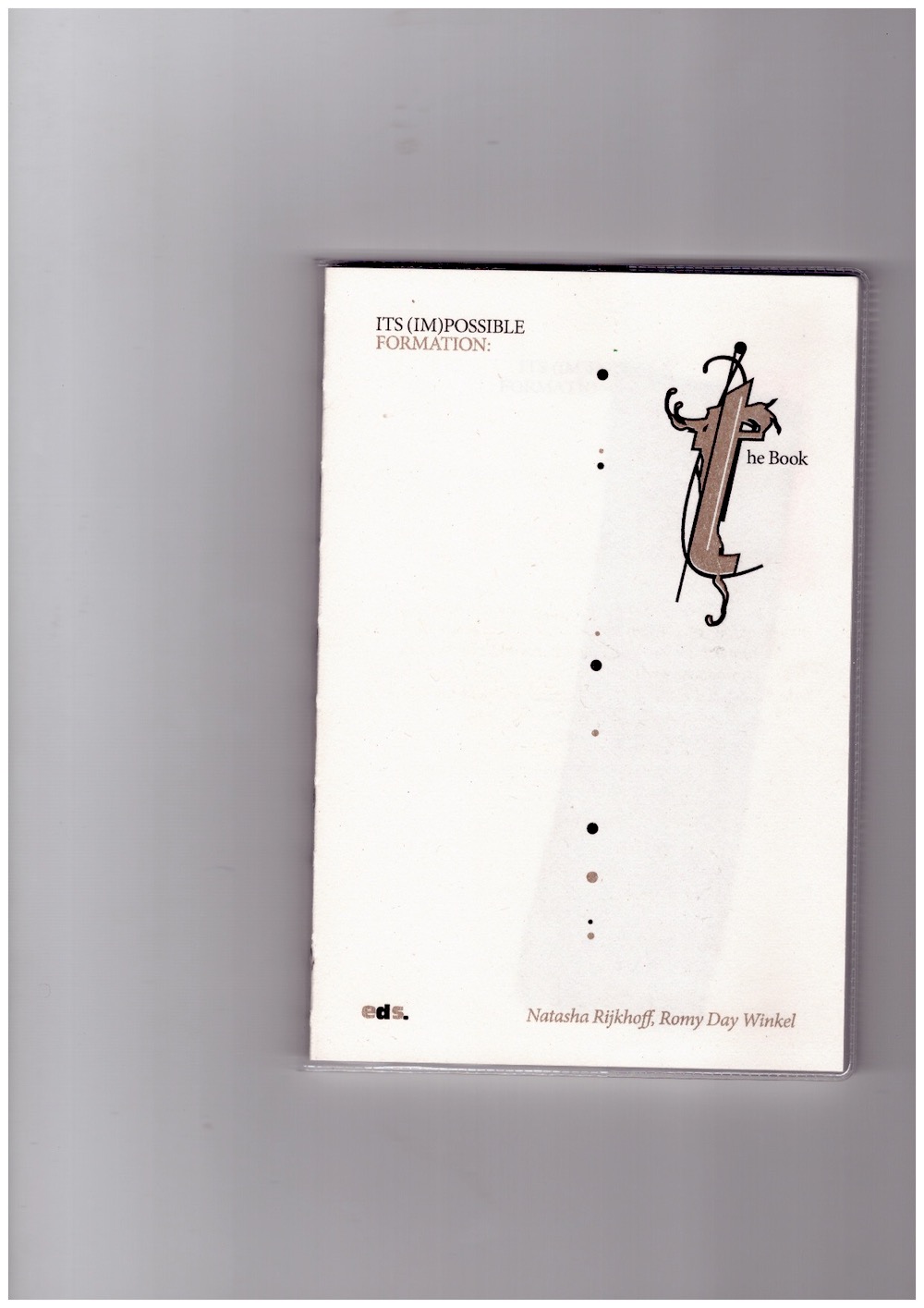RIJKHOFF, Natasha; WINKEL, Romy Day (eds.)
Its (Im)possible Formation: The Book
If you walk into the book shop, through the large open gallery space and past the kitchen, through the unsettling mirrored door frame, into the Riso-workshop, past the ink- drums, drying racks and narrow wooden staircase, you will see two doors. On them is written ‘staff only’. Go through those doors and there is the warehouse of Onomatopee; high and full, with racks and racks full of books.
This publication started with a warehouse full of books, which turned into an exhibition, and then turned back into printed matter. An assemblage of interpretations of what an archive is or could become and what it means to amass and assemble a publishing practice. The contributions range from “A Warburgian Constellation” by Leonie Harkes to the gossipy poetics of unpublished/unpublishable photobook reviews by S*an D. Henry-Smith, to essays on the design, form and feeling of three of publications by Formal Settings, and the text “Ambient Reading, A Method” by Sal Randolph. Romy Day Winkel responds to Mia You’s “A List of Prepositions as Propositions” by applying an erasure poetry writing method to fifty silk bookmarks; Natasha Rijkhoff contributes notes on “Unstable Archiving” and Jesse Muller writes about archives and drawings in her text Sometimes I ask my brother to make me a drawing. The publication has been designed and put together by Tjobo Kho.
“As we navigate through the pages of this publication, it becomes evident that the book and the archive are no rigid entities with clear boundaries; they are malleable objects and concepts, shaped by interpretation and their social and material context. They emerge as living organisms, adapting to the changing currents of the people moving alongside them: a testament to both curatorship and chance, design and chaos. This publication celebrates this unruliness that comes with amassing and assembling a publishing practice.”
[publishers’ note]
Published by Onomatopee, 2024
Design by Tjobo Kho
Essays / Book Culture
